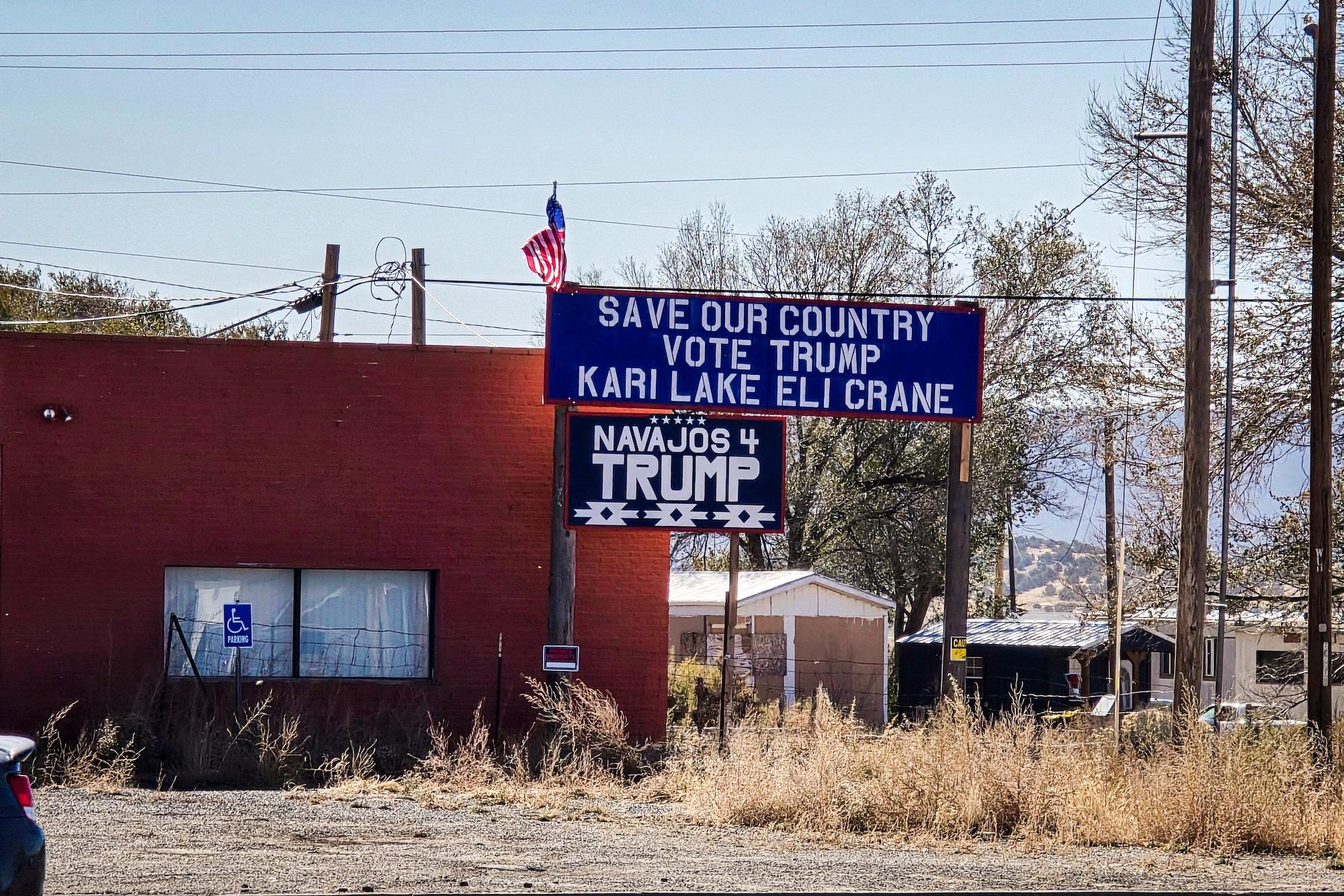Election Reveals Power of Native American Vote
WINDOW ROCK, Ariz.—With a population of over 165,000 people, the Navajo Nation holds the title of the largest indigenous reservation in the United States, spanning 16 million acres, roughly the size of West Virginia.
Featuring breathtaking desert landscapes, majestic mountains, sandstone canyons, and red-rock formations, the Navajo Nation also boasts expansive highways that showcase the beauty of the rising and setting sun.
Despite embracing a modern retail economy and a presidential style of governance, the Navajo people remain rooted in their native traditions.
They share common aspirations for education and material success while grappling with societal challenges like poverty, substance abuse, and fragmented families.
Although not strictly aligned with any party, Navajo voters often lean towards supporting Democratic candidates as they believe these individuals best represent the interests of their community.
Many Navajo individuals participate in elections and cooperate with the federal government, viewing these activities as catalysts for tribal growth and prosperity.
For the 2020 election, the Navajo Nation had approximately 67,000 eligible voters, with a vast majority supporting Democratic presidential candidate Joe Biden, who secured victory in Arizona by a margin of just over 10,000 votes.
In 2024, Republican nominee Donald Trump witnessed an increase in Navajo support, indicating a potential conservative shift in Native American voting trends observed by tribal leaders nationwide.
An Edison Research exit poll reported that Trump received about 65% of the Native American vote across the country.
As per the same survey, Democratic nominee Vice President Kamala Harris received 48% of the vote.
Participants identified as Democrats (31%), Republicans (28%), and others (6%).

A campaign sign proclaims Navajo support for presidential candidate former President Donald Trump in Window Rock, Ariz., on Nov. 15, 2024. Allan Stein/The Epoch Times
Both presidential candidates heavily campaigned in Arizona, a swing state with a 5.2% Native American population.
Alastair Lee Bitsoi, a staff writer for the Navajo Nation Office of President Buu Nygren, acknowledged an increase in Trump’s support among Navajo voters in the 2024 election, citing their perception of Trump’s economic policies and their impact.
Bitsoi noted a significant number of young Navajo men leaning towards Trump and highlighting a potential influence of American capitalism on Navajo society.
Bitsoi emphasized the Navajo spirit of independence as a factor in the election outcome and observed a mirror image of Navajo values in both Democratic and Republican ideologies.
In Window Rock, Arizona, the seat of the Navajo Nation government, conflicting campaign signs underscored the diversity of political opinions within the Navajo community.
Despite mounting support for Trump among Navajo voters, the political discourse remained civil and respectful, guided by traditional cultural values of unity and respect.



